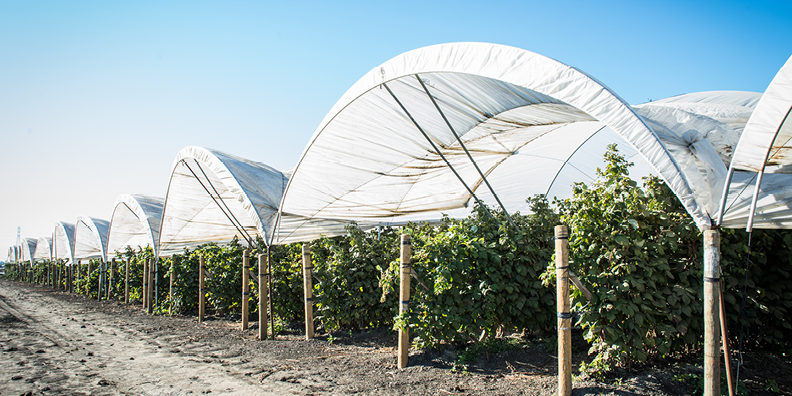California’s Central Valley was transformed long ago into the nation’s most economically productive and intensive industrial agricultural region. Today, it produces more than half of the fruits, nuts, and vegetables consumed in America. While the Central Valley’s agricultural industry is critical to meeting US food need, it comes at a significant price to local residents. The political decisions made, and infrastructure supported, influence the environmental, social, and economic impacts faced by local residents, food workers, and businesses.
For example, the food system is the number one employer in the Central Valley and while the region is known as the “bread basket” of the United States, many of the local residents lack access to healthy food. It is estimated that of low-income adults in each county, 54% in Kern, 47% in Stanislaus, and 46% in Fresno County lacked consistent access to an adequate diet in 2011–12. In addition, those who work in agricultural fields experience higher incidents of wage theft, substandard working conditions, poor educational opportunities, and serious health impacts. These are derived from contaminated water, drifting pesticides and limited access to healthy foods. Conditions like asthma, diabetes, heart disease, cancer, developmental disorders, and birth defects disproportionately impact residents in these communities.
In the face of these challenges, the advocacy, research, academic, policy and community groups of the Central Valley know that, even with a regulatory system, there are political and economic influences at play that undermine the people and the natural resources in the area and beyond. Without the active engagement of those affected most, these systems can prevent low-income people from rising out of poverty.
Political and economic power focused on building an equitable and sustainable food system is critical in promoting significant change in the Central Valley. That’s why efforts like the Rural Justice Summit are important as a forum for bringing the community together to show collective power; influence decision makers and hold them accountable; unify organizational agendas; and build capacity within groups.
Community Vision is proud to join the California Institute for Rural Studies, UC Merced, the Community Alliance for Agroecology, and the UC Davis Center for Regional Change to sponsor the second annual Rural Justice Summit at UC Merced on Wednesday, March 22, 2017.
Community Vision is diligently working on the issue of building an equitable food system through policy mechanisms and by supporting nonprofits and social enterprises focused on community development and breaking down sociopolitical barriers to success. The Rural Justice Summit is an excellent opportunity to actualize this commitment. For more information and to register, visit: http://ruraljusticesummit.bpt.me/





